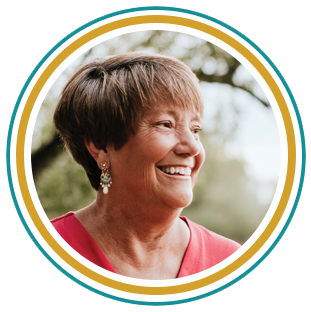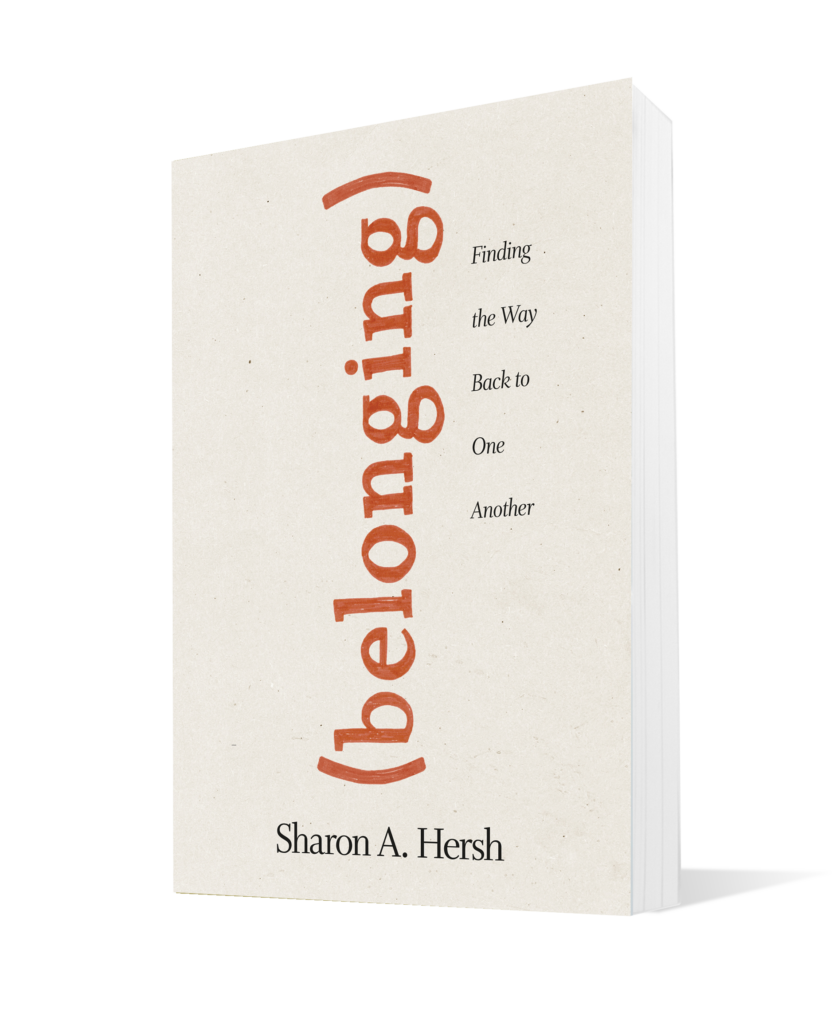It was my father’s eighty-fifth birthday. My brother and I arrived early and set up the tables and chairs. We worked efficiently. We tied a few balloons to a lamp post in front of the retirement community center and Presto! Chango! We were ready to get this show on the road. The caterers set up all the fixings for a barbecue-palooza, and I started to wait (rather impatiently) for the guests to arrive.
For Christmas, I offered my dad the party as a gift—suggesting he invite a few close friends and family members. I should have expected my parents’ response to my gift, but I was caught off guard when they posted the invitation in their church bulletin. Rather than getting ready for a dozen or so guests, we set up the party for almost forty people!
My parents’ church is a small congregation of about fifty members. It’s a community church named Grace. My parents, in their eighties, are some of the youngest congregants. Their church doesn’t have a worship band. In fact, when my dad was eighty-two years old, he and another elder climbed into the attic to turn down the volume on the organ. They didn’t want to dim the joy of the ninety-year-old organist by asking her to play a little quieter. The members of this church don’t always remember to turn on their hearing aids or bring their reading glasses. They don’t walk quickly. In fact, they don’t do anything fast—and that is outside my comfort zone of speed, efficiency, and competency.
I found myself checking the front door of the community center for the geriatric set to arrive and tapping my foot a little impatiently. You’d think I would know from my foot-tapping experience at Einstein Bros. Bagels that I was merely alerting the Storyteller of my life by my impatient antics that I needed more content written into my story—and maybe more characters.
Slowly, the elderly members of my parents’ church made it to the party. Near the last to arrive was Mary Ann. Her gnarled hands gripped her walker as she haltingly made her way toward me. I doubt Mary Ann watches Game of Thrones or spends much time talking about the politics of the day, but she knows everything about my adult children and tells my parents every week that she is still praying for us all. She is known for the literal calluses on her knees.
“Mary Ann!” I greeted her. “I am so glad you could make it.”
“How are your children, dear Sharon?” she asked. My heart settled in the peace she exudes. I told her they are doing well and thanked her for praying.
“Oh, that isn’t hard,” she said with a twinkle in her bright blue eyes. “I don’t have anything better to do.”
I knew she meant it.
I thanked God for introducing me to this cast of characters from my parents’ church and prayed he would slow me down to learn the wisdom of those who don’t have anything “better” to do. The gracious Storyteller introduced new characters to my story—not so much for what I could offer them, but for what they could offer me. Every new character who walks into my story is potentially an agent of change, but this is where things can get tricky.
Embracing the Marginalized
New characters can be controversial. Most are not as easy to love as Mary Ann. Including new characters in our stories can make us suspect. There is a reason why we marginalize people to the edges of our lives. Evil’s commitment is to make our stories and their cast of characters small. Evil’s primary directive is to convince us to not give our presence to others or receive theirs.
The elderly are only one segment of our society who are often invisible—even, and perhaps, especially—in the church. Absorbed in that invisibility are the experiences, losses, hopes, and fears of years of stories. One author describes this often left out cast of characters:
There’s a quiet generation of people who are being blatantly shunned and abused. They are the “invisible” generation; the elderly among us who are often regarded as feeble-minded and lacking in the ability to contribute to society in a meaningful way. This ageist attitude has robbed senior citizens of their self-worth, leaving them the victims of prejudice and disrespect. Compassion, courtesy and respect have gone by the wayside.[i]
Sadly, our culture has marginalized women like Mary Ann, and the result is that we are stories who are anemic, desperate for the rich life blood that comes from the stories of other image-bearers.
When I am the most important character in my story, I miss the characters who might be the catalysts to transforming grace in my life. If common grace is recognizing the image of God in everyone and considering every conversation as potentially life-giving, then transforming grace lives on the edges—outside of what is perceived by our culture as “acceptable”. When the cast of characters in our stories is determined by who makes us look good, who agrees with us, who elevates us, or who makes us comfortable, our stories become much smaller than God intended. Daring to go outside our “bubble” of conformity to invite in those on the margins creates of metamorphosis of belonging.
As I began to experience the story of love God is writing in me—a story that stretched me to love my daughter (even and especially because she is different from me)—I started to wonder what other characters I might be missing. It really wasn’t hard to learn to speak my daughter’s language or to invite Mary Ann into my life. Love for both of them came naturally—and, quite honestly, is acceptable and often expected by our culture. But what about love for the more marginalized? People of different lifestyle choices, ethnicities, or belief systems who are outside the walls of familiarity and acceptability?
Stretching the Tent
Real transformation began to shake in the depths of my being when I recognized that God actually gives us a cue, an alert signal that he is at work stretching our hearts and our stories. Surprisingly, the warning signal is shame. Like the proverbial red light on the dashboard of a car, shame tells me that something needs to be done—but I know I’m not the one with any skills or training to do anything about it.
Shame signals that something is not well in our hearts, and we don’t know how to fix it. I felt the flicker of that light when I started tapping my foot impatiently, waiting for my father’s party guests to arrive. Shame reveals an ugly or unlovely part of our souls.
For most of us, shame—not the purposes of God—shapes the cast of characters in our stories.
We avoid the man living in sexual sin, the teenager who chooses the Wiccan religion, the family whose ethnic beliefs and customs we don’t understand, because it helps us escape shame—the sense that something is unfamiliar to us and we aren’t competent to deal with it.
We violate love when we avoid people because we don’t know what to say or do and don’t believe that interacting with people at the edges of our lives might introduce us to beauty, goodness, and gratitude.
Fear and pressure are what energize us—we think we will be exposed as fools for loving someone suspect, as unwise for inviting people who make bad choices to eat dinner with us, as naive for not knowing the right words. And so we invite our cast of characters on the basis of what is acceptable or familiar instead of what is sacred.
The power of shame is that it makes us small.
It silences us. Because we don’t want to feel stupid, suspect, judged, or incompetent, we avoid other image-bearers who aren’t like us. We become a part of a faceless mob who all look alike, talk alike, believe alike, and sadly, exclude alike. All this exclusivity is eased by our technology. We can write someone off and never look them in the eye. We can condemn a whole group of people and not ever see a single face.
Our face shows our unique identity. It is who we are. Our face reveals more of who we are made to be than any part of us. When we risk expanding our stories to include a more diverse cast of characters, we are transformed when we come face-to-face with others. Inviting others into my story—even when I know all is not well and I don’t know how to fix things—shakes my heart and soul into the realm of transforming grace.
We may talk and think about grace a lot, but that isn’t enough. Grace needs to be the theme of our stories—the very air we breathe, the relationships we include, the translation of our experience with Jesus to others. Grace isn’t just a theologically interesting category. It’s how we live and who we live with. If we’re going to stretch the tent to add others to our stories, we need to be honest enough about our need for Jesus that we can call our judgment, fear, people-pleasing, disdain, and exclusion of others sin. Only when our understanding of our sin confronts us with our constant need for forgiveness can we be ushered into transforming grace.
Sources
[i] Marcia Kester Doyle, “The Invisible Generation,” HuffPost.com, March 25, 2015, https://www.huffpost.com/entry/the-invisible-generation_b_6938344.




So I’m not alone after all. Thank you for this.
Thank you for writing about the “bubble”. I live in an area that is rural. There is still a remnant of families who can claim the title of founding family. Many little congregations of 20 or less are scattered about. And they are fossilized. Now that I am one of the old people (age 69) I can speak freely about the poisons labeled, “We Used To and We’ve Always”. There is a fear of change that is killing congregations. There is much to be appreciated in tradition but it shouldn’t equate to stagnation. There can be a beautiful blend of The Getty’s song “In Christ Alone” played on an organ, fresh flowers (replacing all the dusty silk and plastic), pleated blinds replacing curtains, chairs replacing pews (helpful for walkers and wheelchairs). The challenge is to trust The Lord instead of relying on sameness. Regardless of our age and experience, it is good to “Pass the Torch” rather than letting it burn out in your own hand.